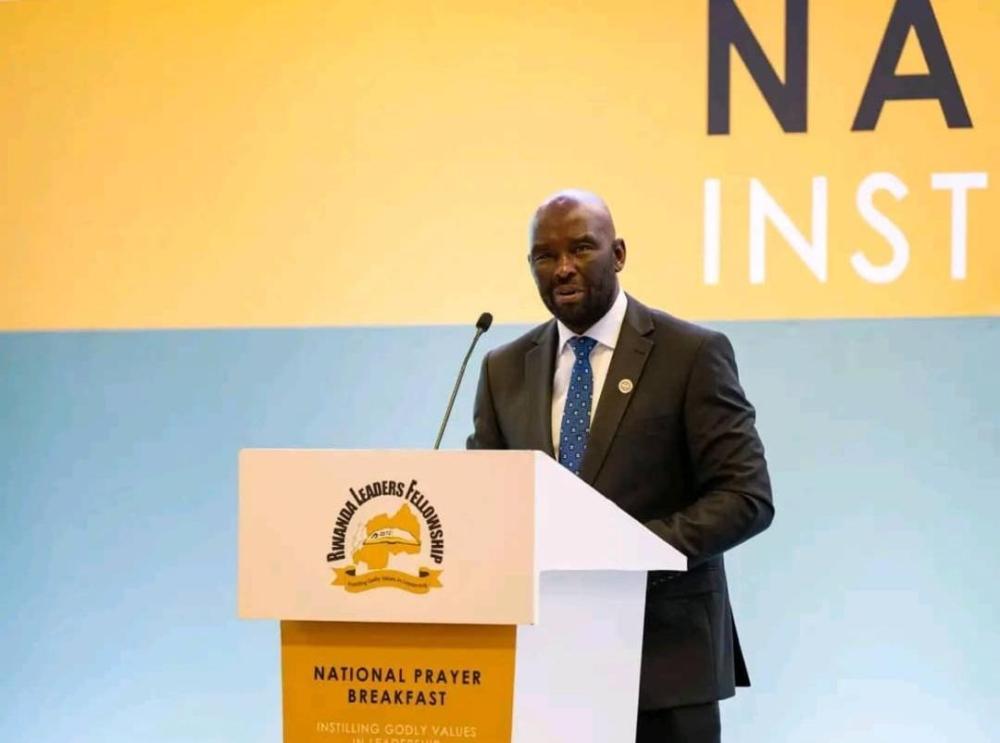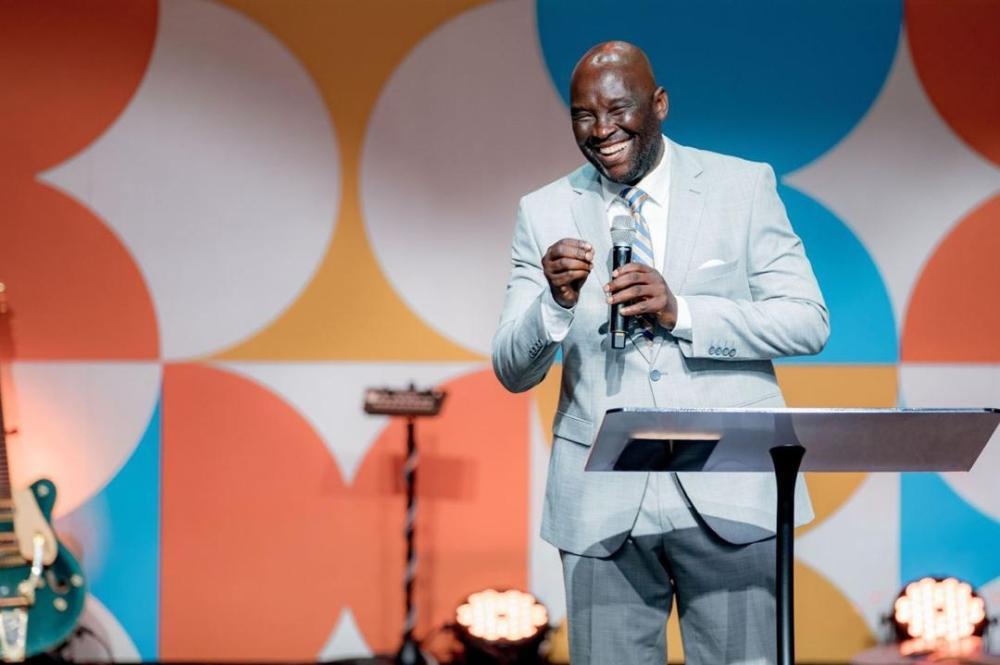Africa-Press – Rwanda. Concerns over religious extremism and cult-like practices are increasing in Rwanda, and the region. For instance, in 2024, Rwandan authorities shut down over 100 church caves for failing to meet legal requirements, following reports of worshipers living in isolation under unsafe and manipulated conditions.
In Kenya, a doomsday cult led by Paul Mackenzie was linked to hundreds of deaths in 2023 most of whom showed signs of starvation, including children. In the same year, in Uganda, 80 followers of a religious cult were deported from Ethiopia after being lured into fasting for 40 days, with the belief that they would meet Jesus on the 41st day.
In 2018, Prophetess Olivia of Repohim Church in Sinza, an administrative ward in Ubungo District of Dar es Salaam, in Tanzania, was criticized after a video showed her instructing a congregant to scream during a deliverance session. The footage fuelled accusations of staged miracles and raised concerns about deceptive practices among some spiritual leaders.
If places of worship become sites of manipulation, isolation, and harm, who then protects the faithful from those who claim to lead them? In an interview with The New Times, Reverend Nathan Chiroma, the Principal of Africa College of Theology, in Kigali, explained how to recognize and address these harmful behaviours.
The excerpts:
What are the key signs that distinguish true religious faith from harmful extremism or cult-like behaviour in a church?
The universal church holds on to the testimony of The New Testament writers’ regarding Jesus and the revelation of God in Scripture. A cult or an extreme religious group or organization is one that deviates from these two things, the exclusivity of salvation in Christ, and the Bible as the complete revelation of the mind and will of God.
These two components of the Christian faith are typically replaced in cults by believing or following a leader who claims certain revelation or powers from God, and by adding to or removing things from the Bible to give credence to the “new revelation.” Yet, Paul already warned that if anyone, including himself or an angel from heaven, preaches a gospel different from the one he has preached, let that person be cursed as stated in Galatians 1:8-9 which emphasizes the importance of adhering to the original gospel message.
Believers conduct a prayer in a cave in Nyamagabe District. File
Signs of the true Christian church include a Christ-centred and gospel centered teaching. The focus remains on Jesus’ teachings, character, and redemptive work, not a human leader or organization.
Secondly, biblical authority should be properly applied. For instance, scripture is upheld as authoritative, but interpreted in context and with humility, not weaponized to control. Believers are encouraged to study the Bible and apply it in their personal lives. The Bible is the final authority in doctrine and practice.
Thirdly, there should be love, grace, and the fruit of the Spirit. True Christian community demonstrates love, patience, kindness, gentleness, and self-control as the word of God says in Galatians 5:22-23. Grace is extended even to those who fall short, without enabling sin or ignoring justice. Fourthly, there should be servant leadership, not authoritarian control. For example, leaders serve the flock, not dominate it, as in 1 Peter 5:23; and Mark 10:42-45.
Genuine Christian churches maintain accountability through structures such as elders, transparent governance, and shared leadership. These systems help prevent authoritarian control, promote integrity, and ensure decisions reflect collective responsibility and biblical principles.
How can pastors and church leaders ensure that their influence does not lead to manipulation or blind obedience from their followers?
The first thing that comes to mind is Paul’s warning to Timothy, “Watch your life and doctrine” in 1 Timothy 4:16. The pastoral ministry is a noble calling, but only if the pastors know that they are under-shepherds of Christ. Sometimes, success in ministry builds pride and vain glory.
Church leaders must remain humble and remember they are called to serve, not to be served, as says Mark 10:45. Therefore, to “watch your life” means to keep yourself in check and maintain a faithful walk before God. This includes seeking peer mentors who can give you constructive criticism and feedback. To “watch your doctrine” is a call to faithfully teach the word so as not to deviate from sound doctrine.
What role should the church play in protecting individuals, especially the vulnerable, from being drawn into cults or such groups?
The main role of the church is to make disciples, according to Matthew 28:19. Discipleship is a never-ending process.
This task requires that the church spends its time developing believers who are following Jesus. They don’t have to be perfect; on the contrary, there will always be those coming to faith as baby Christians, who the church must learn to feed milk rather than meat.
If a member of the church is deviating or being lured into a cult, the church needs to reach out to point them to Jesus and the scripture. Programmes and activities are not always what these baby Christians need. The church must equip members to do the work of discipleship, according to 2 Timothy 2:2.
Can you point out some red flags in places of worship?
Cult-like behaviours is exaltation of a leader or group. A charismatic leader is seen as infallible, with authority equal to as or greater than Scripture. Here, members must follow the leader unquestioningly; dissent is punished or shamed.
Another red flag to look out for is when members are cut off from family, other churches, or the world when leaders demand control over personal decisions – such as marriage, finances, and jobs – and when questioning teachings is seen as rebellion or a sign of demonic influence.
Other red flags are seen when scripture is used out of context to support control, fear, or guilt.
Complex or secondary doctrines are made into tests of salvation. Additionally, the community uses guilt and fear of damnation to control behaviour and grace salvation feels earned by behavior, dress, submission, and so on and so forth. Additionally, the ‘us versus them’ mentality, where the group sees itself as the only true Christians; all others are deceived. There is no openness to correction, dialogue, or other expressions of Christian faith.
How can pastors and church leaders ensure their influence does not lead to manipulation, or blind obedience, from church members?
The initial measure to prevent the church from leveraging its influence to manipulate members, or foster mindless obedience, is to recognize that the church belongs to God; as leaders, we are but under-shepherds, while Christ is the owner and main shepherd of His church.
As leaders, our responsibility is to direct them towards Christ rather than ourselves, and we must inspire them to look to Jesus, the author and finisher of their faith. Church leaders must recognize that those entrusted to their leadership are made in the image and likeness of God, and they must regard them accordingly.
Church leaders must comprehend the principles of biblical leadership exemplified by Christ, which centre on servant-hood and redemptive servant leadership. We are not called to control but to serve, according to Matthew 20:25.
The church needs leaders who are rooted in the word of God to effectively anchor the members in healthy theological principles, according to Ephesians 4:14-19. The church requires leaders who are theologically trained and rooted in scripture, capable of addressing existential inquiries and assisting Christians in navigating life without exploitation.
The church must function as a holistic community, where members are supported not just spiritually but also economically, as some individuals are being exploited due to false promises.
Reverend Nathan Chiroma, the Principal of Africa College of Theology, during his preaching
For More News And Analysis About Rwanda Follow Africa-Press








